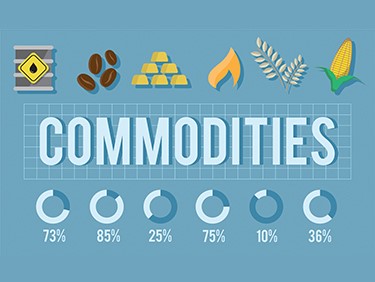-
In a recent report, HC Brokerage presented their analysis of the food & beverage sector in Egypt where they shed the light on Edita Food Industries’ performance and maintained their OW rating on compelling valuation.
- Consumption recovery is behind us; however, the 14% VAT imposition may drag volumes; we estimate a 2020–25e volume and revenue CAGR of c10% and c14%, respectively
- Improved sales mix, along with indirect price increases, should mitigate higher costs, translating to a 2020–25e EPS CAGR of c18%
- We reduce our 12M target price c18% to EGP12.0/share on lower estimates but maintain our OW rating on compelling valuation
Noha Baraka, the Head of Consumers at HC commented that: “Inevitable volume recovery, in our view, yet the potential imposition of a 14% VAT remains a risk: We see a good year ahead for the snack-food market, with inevitable private consumption recovery, in our view, backed by easing inflationary pressures, stable FX rates, and a low-interest-rate environment. If it were not for the possible imposition of a 14% value-added tax (VAT) (instead of 5% currently) on snack food goods, including bakery, we would have been more optimistic about a surge in demand. This surge would have been backed by the Egyptian government’s eased COVID-19 precautionary measures allowing more on-the-go consumption of snacks, not to mention the change in consumer behaviour, tilting more towards products offering more value for money, despite higher price points. However, we opt to be conservative in our volume estimates for the time being as we believe direct price increases following the VAT imposition could initially cause a demand shock, especially in light of tamed inflation rates. Accordingly, we expect total volume to rise c9% y-o-y in 2021e to 104,800 tons, almost unchanged compared to our previous estimate. Longer-term, we expect inflation to average c9% and private consumption to increase and normalize at 5% from an estimated 1.0% only in FY20/21, further supporting our assertion of an acceleration in the pace of volume recovery. Accordingly, we look for a 2022e–25e total volume CAGR of c11%, on average. We expect the croissants and wafer segments to stand out the most given new product launches, not to mention the inauguration of the biscuit segment and potentially rolling out of new SKUs, and the materialization of the company’s Moroccan JV to all help accelerate demand recovery.”
“We expect high margins to sustain over our forecast period, despite an unfavourable cost outlook: Despite the significant surge in most of the input costs, rising almost c18% y-t-d (except for sugar and cocoa, which remained essentially unchanged y-t-d, yet still increased c31% y-o-y), and higher cost base to support new ventures, we believe a more robust EGP/USD rate and higher volumes should primarily mitigate this. Therefore, we expect the 2021e EBITDA margin to expand 1.4 pp y-o-y to 17.1%. Going into 2022e we expect margins to continue expanding mainly on: (1) Edita’s continued efforts to re-engineer its portfolio and introduce to the market new offerings at higher price points, 2) venturing into new segments, 3) and ramping up of utilization rates. Thus, our numbers point to a terminal EBITDA margin of 17.6% by 2025e. We are optimistic about the company’s management initiatives over the past year to increase its debt level in EGP terms, which we expect would expedite Edita’s earnings recovery and enhance returns. We forecast 2020–25e EPS to increase at a CAGR of c18%, on average, which leaves our ROE at 27.3% by 2025e from 17.2% in 2020, further solidifying our view of improving profitability.” Baraka added.
“ We reduce our 12-month target price by c18% and maintain an Overweight rating on further share price dip: We reduce our 12-month target price by c18% to EGP12.0/share on our new lower estimates across the board. Our new target price implies a 2022e P/E multiple of 19.1x and EV/EBITDA multiple of 9.5x, offering a potential return of c58% over the 22 April closing price of EGP7.75/share. Therefore, we maintain our Overweight rating. In our view, the current valuation is highly compelling, with the stock trading at a 2022e P/E multiple of 12.3x, which is a c49% discount to its peers’ implied multiple of 24.2x. The stock is also trading at a 2022e EV/EBITDA multiple of 6.1x, a c61% discount to its peers implied multiple of 15.5x. We believe the market is overstating VAT-associated risks and over penalizing the stock, which is unjustified in our view in light of its good operational recovery. We see Edita as too cheap to ignore in a sector characterized with high trading multiples nature, suggesting potential share price correction from current levels.” Baraka Concluded.



